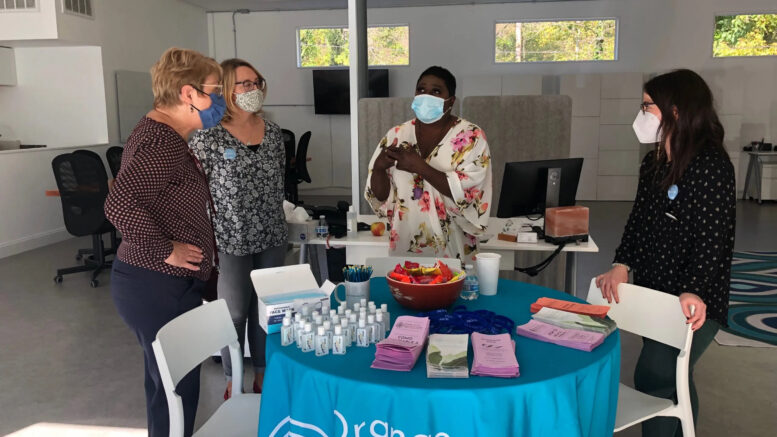Fighting to keep NC rape crisis centers open
By Anna Lynch
When I first joined the board of the Orange County Rape Crisis Center, or OCRCC, I never suspected that much of my mental energy would be focused on funding streams from the Justice Department, but here we are. The agencies that serve victims of crimes are facing deficits such as we have never seen before, and we don’t see any promising changes on the horizon.
Let me back up and give you the information you need to understand how we got here. OCRCC and other agencies nationwide serving sexual assault and domestic violence survivors receive the bulk of their funds from the Victims of Crime Act, or VOCA, grants distributed by the Department of Justice, or DOJ, in state block grants. The federal funding through VOCA has decreased significantly over the past four years and continues to fall. According to the N.C. Governor’s Crime Commission, the agency that oversees the disbursal of VOCA funds, the fund will likely dry up or be on very shaky financial ground by the end of the 2023-24 fiscal year.
VOCA is funded by the fines that white-collar criminals pay when they are prosecuted by the DOJ. Yes, you read that right. In order for crime victims to receive services, someone else has to commit a crime and pay a fine. Over recent years, the DOJ has prosecuted fewer white-collar crimes, opting to make settlement deals, but the fines paid in those settlements went into the general treasury instead of the VOCA fund for several years. In 2021, Congress passed the VOCA Fix Act of 2021 in an attempt to move new fines back into the VOCA fund. But for years, the agencies dependent on those funds were denied full funding and continue to struggle.
Imagine that you didn’t receive a paycheck for four years, and then your bosses said that they would start paying you again but didn’t reimburse you for the missed wages. That’s the situation that these agencies are in. They have continued to limp along and provide services as best they can, but the depths of yearslong funding cuts, which continue today, are having significant effects. The fact is, the fund is not growing; rather, it is shrinking. From 2016–22, it was raided to fund other initiatives that Congress was supposed to allocate money for, including the Violence Against Women Act mandates.
At the same time that funding is drying up, OCRCC has seen record increases in the last two years in demand for services at OCRCC—in both direct client care and prevention services. At OCRCC, we’ve done our best to rise to the call by building capacity and partnerships. But those efforts still leave the agency with a huge funding gap. This month, we had to lay off 50 percent of our staff. And we are only one agency. Imagine the ripple effects across the country for all the agencies serving survivors of sexual assault and/or domestic violence.
Do we really want to live in a society where a survivor of sexual assault has nowhere to turn for support after the attack? Rape crisis centers at a minimum run 24-hour hotlines, dispatch support workers to attend hospital visits where sexual assault exams take place to collect evidence, advocate for survivors in court and provide counseling and support groups. Without rape crisis centers, survivors will be left alone, which could contribute to long-term mental health issues and an even greater lack of prosecution.
So, what can we do to help support these agencies and the survivors? On a personal level, we can all donate time and money to our local agencies. Because agencies are having to cut staff, there are many small administrative jobs that volunteers can help with. You can find your local North Carolina agency by entering your county at the NCCASA website.
You can also help us in our advocacy efforts. Over 1,500 agencies nationwide recently sent a letter to the Congressional Appropriations Committee asking legislators to stop making such significant cuts to VOCA funding. You can make your voice heard as well by calling and/or writing to your national representatives in the Senate and House offices and letting them know that you care about this issue. To learn more about the issues and advocacy efforts, you can visit the National Network to End Domestic Violence website.
There are many, many important programs that need federal funding, including other social programs like disability benefits, housing programs and food assistance. But victims of sexual assault face a mountain of shaming and continued fear of their perpetrators. Funding rape crisis centers to provide supportive services is the least we can do as a society. We don’t just need emergency funding; we need sustained and dependable funding for rape crisis centers.
Because no one wants to think about sexual assault or domestic violence, survivors have few allies willing to learn about the issues and speak up. If this issue speaks to your heart, I encourage you to make those phone calls and donations. And please make sure to let all your friends know, too. It takes a village to save ourselves, so let’s do it today!
Source: carolinapublicpress.org, October 22, 2023

